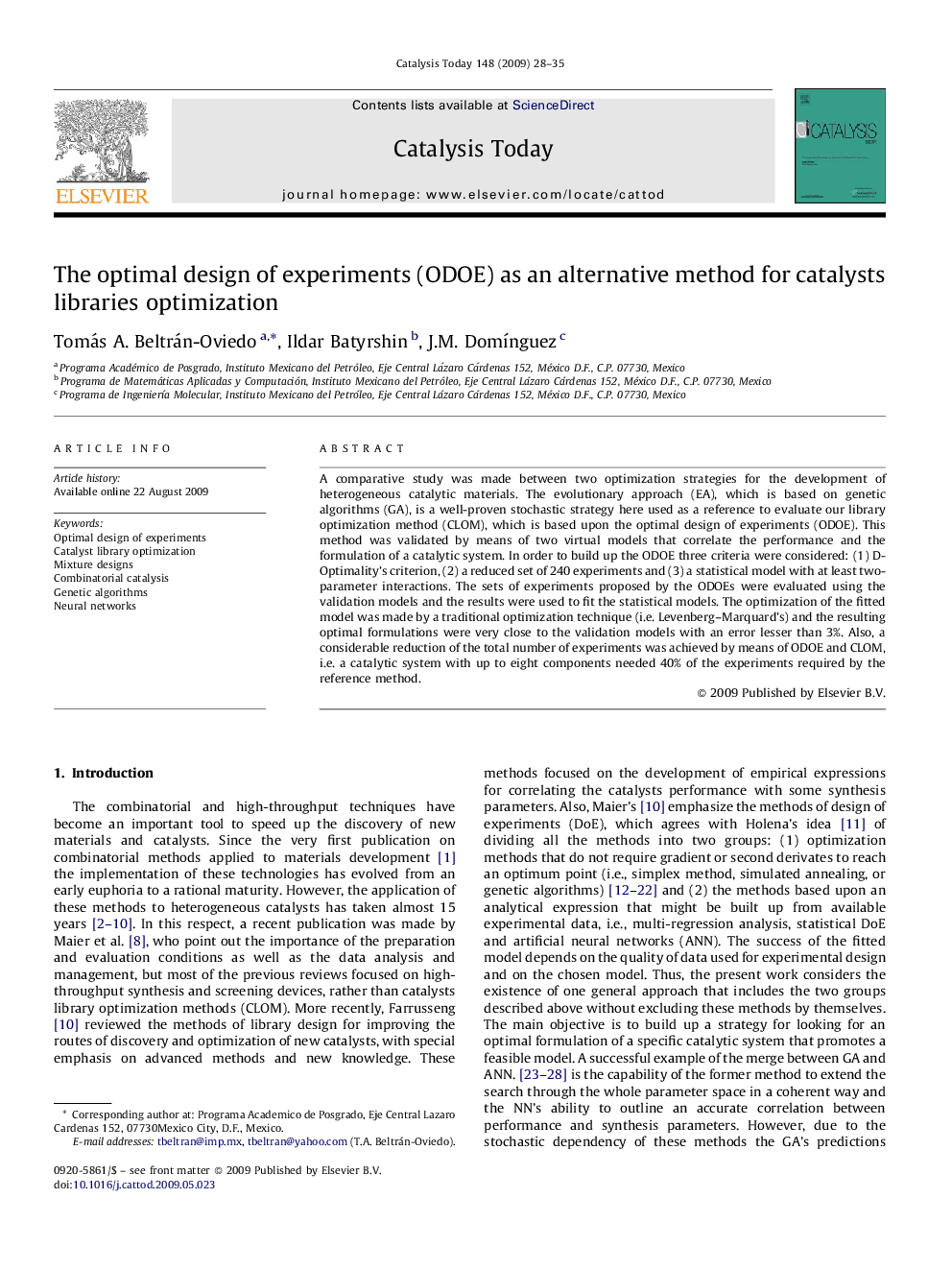| Article ID | Journal | Published Year | Pages | File Type |
|---|---|---|---|---|
| 57033 | Catalysis Today | 2009 | 8 Pages |
A comparative study was made between two optimization strategies for the development of heterogeneous catalytic materials. The evolutionary approach (EA), which is based on genetic algorithms (GA), is a well-proven stochastic strategy here used as a reference to evaluate our library optimization method (CLOM), which is based upon the optimal design of experiments (ODOE). This method was validated by means of two virtual models that correlate the performance and the formulation of a catalytic system. In order to build up the ODOE three criteria were considered: (1) D-Optimality's criterion, (2) a reduced set of 240 experiments and (3) a statistical model with at least two-parameter interactions. The sets of experiments proposed by the ODOEs were evaluated using the validation models and the results were used to fit the statistical models. The optimization of the fitted model was made by a traditional optimization technique (i.e. Levenberg–Marquard's) and the resulting optimal formulations were very close to the validation models with an error lesser than 3%. Also, a considerable reduction of the total number of experiments was achieved by means of ODOE and CLOM, i.e. a catalytic system with up to eight components needed 40% of the experiments required by the reference method.
